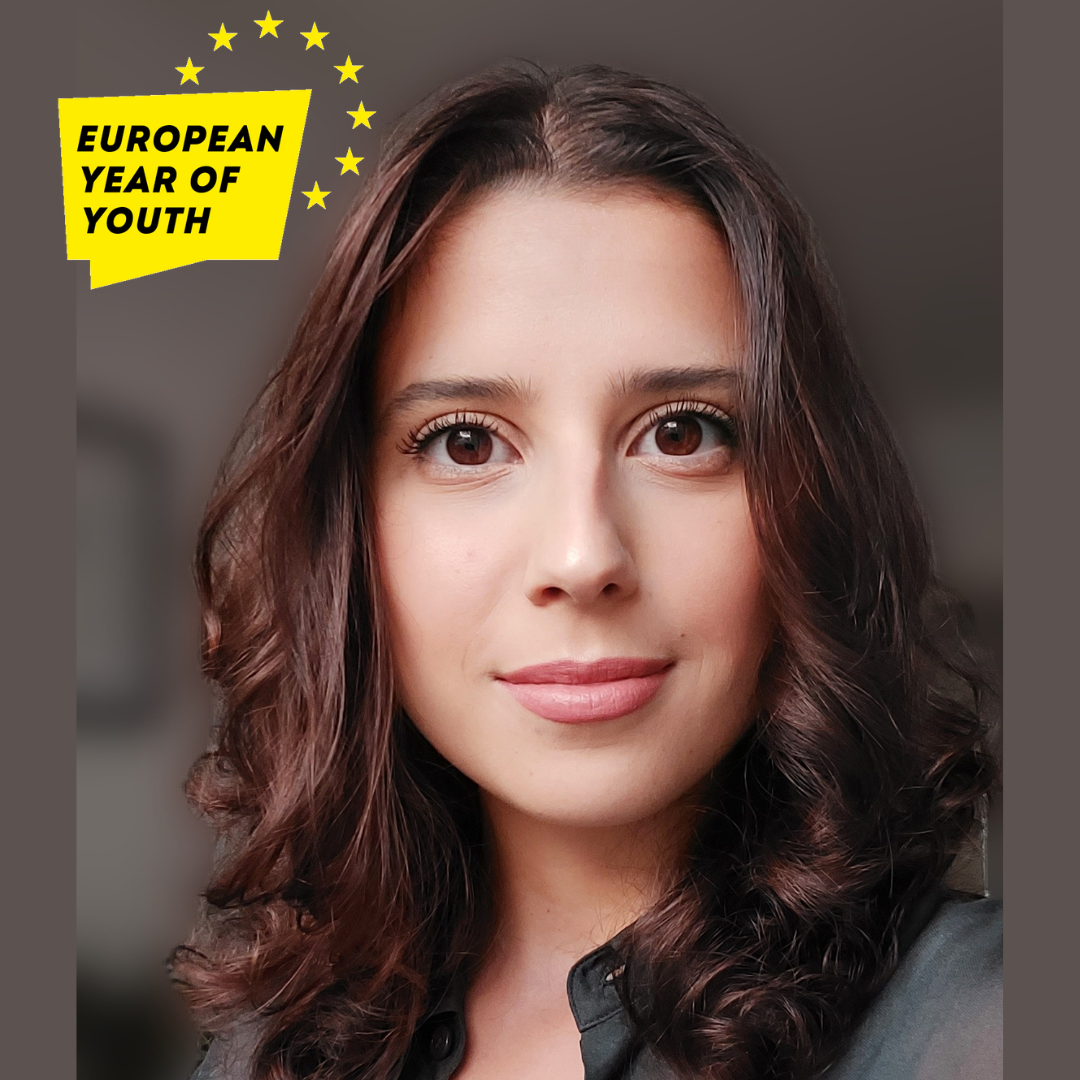2022 is the European Year of Youth. To celebrate this occasion, CEN and CENELEC are conducting a campaign, presenting a series of regular interviews with young professionals active in European standardization, all around Europe. In the ninth episode of the series, we get to know Alessia Gaetani, from Italy, who works at the CEN and CENELEC Management Centre.
1. Please, present yourself. To what extent are you involved in standardization?
Standardization is my bread and butter, since I work as Project Manager at CEN and CENELEC, in the Manufacturing team. There, I am in charge of the chemicals sector, and I also deal with mining & metals and with construction products, including sustainability aspects.
In my daily work, I make sure that Technical Bodies have access to the relevant information, and I support them in order to facilitate the European standards development work. I also act as a link between the Technical Bodies, Partners Organizations, the European Commission, and other external stakeholders, ensuring a smooth information flow.
2. How did you become interested in standardization? Were you already familiar with it before you joined CEN and CENELEC?
Before joining CEN and CENELEC, I was working for the trade association representing the bioenergy sector in Europe, where I was involved in third-party certification schemes for solid biofuels. In that context, I became acquainted with European and ISO standards, and I understood how crucial they are in providing the market with common technical guidelines. The more I was working with standards, the more I paid attention to how they are all around me and play a fundamental role in my everyday life.
I was also very lucky to participate as expert in ISO/TC 238/WG 2 'Fuel specifications and classes', where I got the chance to see how standardization works from the ‘inside’. A very fascinating world, especially for a young professional.
3. At CEN and CENELEC, you are in charge of work on the chemicals sector. Based on your experience, what is the relevance of standardization at the European level?
Not only the chemical industry is a pillar of the EU economy, but – having an impact on safety, health, and environment – it is also highly regulated. This means that many substances are banned, or their use is limited (see the CLP Regulation and the REACH Regulation). Not to mention specific products, such as fertilising products or detergents, that are regulated through specific legislations.
Testing products and substances through European Standards can surely make manufacturers' life easier, as they can rely on validated standardized methods instead of developing their own – which would cost money and resources. The same goes for laboratories and Notified Bodies. Depending on the legislation, the use of European Standards to test products can also provide the so-called 'presumption of conformity' and give access to CE marking.
Beyond the 'simple' compliance with legislations, standards are also a great boost for competitiveness and innovation – two key factors for the development of the chemical industry. Moreover, considering that the sector is still very energy intensive, standards can also support its green transition.
4. What role do you think standardization can play in the future in addressing big challenges, such as the digital transition and climate change?
Standardization will play a major positive role in the twin transition, but only if it is able to keep up with a fast-changing world and its urgent needs.
When it comes to the digital transformation, at CEN and CENELEC, on the one side we are transforming the way we develop standards – building an agile system for our stakeholders. On the other, we are working to produce standards that can fit into the new digital era – for instance by providing innovative formats that can allow more automation. A very interesting project I am involved in is the 'SMART standards', through which CEN and CENELEC will move from the traditional PDF format to machine-readable standards, that can be imported by users into their systems. A true revolution.
There is also much that standardization can do to tackle climate change. Not only we need to develop horizontal standards capable of providing overarching frameworks for circular economy, recyclability, or the measurement of environmental impact, but we also have to undergo a true paradigm shift in the way we think about product standards. Especially in certain traditional sectors, the focus is on the performance of the products when they are used, while their environmental sustainability often takes a back seat. But I am happy to witness this ongoing change in my Technical Committees. And in case you are wondering, yes, young people play a major role in this mentality change!
5. In your sector of expertise, what is the current state of youth participation in European standardization? And more generally: why is such participation key?
In some of my Technical Committees there are young professionals – most of them being Millennials – but I believe that there is still a big margin of improvement for youth participation in European standardization. My wish is that seeing 'young faces' in plenary meetings will no longer be a source of surprise, just the norm. I am also very curious to see the Generation Z taking part in standardization: being true 'digital natives', they can be a strong driver for the digital revolution.
Young people bring innovation and provide solutions with a holistic approach – considering environmental, social, economic, and digital aspects. Through standards, we have the possibility to shape a better world, more sustainable and fair. Our best chance to succeed in this mission is to have young minds on our side.
6. What can CEN and CENELEC, as European Standardization Organizations, and national standardization organizations do to improve the participation of young people?
Let's be honest: most laypersons think that standardization is not a sexy topic. Also myself, when I first started working for CEN and CENELEC, I struggled a little to explain to someone new what I do for a living and why I love it. But then I understood that the key to catch people’s attention is to make them realise that standards are in everyone's life.
Standards are surely present in everybody’s professional life, whether they are engineers working with product specifications, or HR manager dealing with quality management systems… Wouldn't anyone want to contribute to the improvement of such standards?
In my opinion, engaging with young people by showcasing the relevance of European standards in their businesses should be enough for CEN and CENELEC and their national members to get them on board.
7. What advice would you like to share with fellow young experts who might be interested in European standardization?
Approach it with enthusiasm and an open mind. Standardization might look intimidating, but its beauty is that everyone can contribute with their own knowledge and expertise. After all, standardization is a shared effort towards a common goal. By joining, you will have the chance to meet people from all over Europe, with different backgrounds and skillsets that will enrich you both professionally and personally.
You can follow the rest of the campaign here and also read the other interviews to our Young Professionals in Standardization.
Read the previous episodes of the series:
Episode 3, with Kristin Fagerli
Episode 4, with Alexandre Colombier
Episode 5, with Saharnaz Dilmaghani
Episode 6, with Jayson Shepherd
Episode 8, with Lilian Fehlmann
Join the conversation through the hashtag #EuropeanYearOfYouth

Giovanni COLLOT
gcollot@cencenelec.eu



